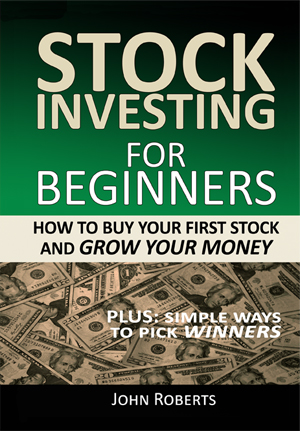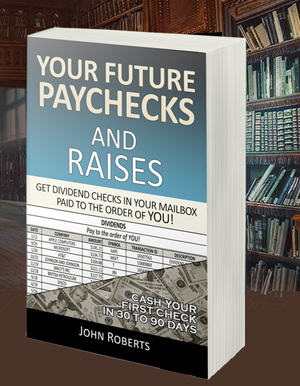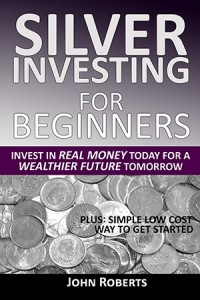The Top Exchange Traded Fund (ETF) Providers
When you own an individual stock, your focus is simply on that one company. That is to say, the company you own the stock in. Your interest is in how it is performing, the quality of the management team, financial standing and performance, etc.
But when you are invested in an exchange traded stock fund (ETF), you have many more things going on. For one, you’re dealing with more than one company’s stock. You might have fifty, or a hundred, or even thousands of stocks. And that’s because the fund you’re invested in owns some of all of those stocks. Now you don’t necessarily have to research all of those stocks because the ETF provider has selected them.
But that highlights the fact that now you have a third party involved, which is the Read the rest of this entry »
How To Reduce Your Stock Risk – Affordably
With the large up and down swings of the stock market over the past year, many stock investors have concerns about risk to their stock portfolio.
Of course, stock investing always carries risk, but there are a number of ways to reduce it. We’ve written about some of these in the past, like using position sizing and stop losses.
In this issue we’ll cover another risk reduction practice called diversification. Diversification spreads your risk by owning shares in more than one or a few company’s stocks. In other words, you don’t put all of your eggs in one basket. Instead, you own a larger number of different company’s stocks.
So we’ll look at a class of stock investments that have diversification built right into them. And while many investors at all levels invest in them, they are particularly useful for beginning and small investors. So we’ll focus on Read the rest of this entry »
What Are The DOW And The S&P 500?
You frequently hear about the DOW and the S&P 500 in the news. And when they are up, as pictured above, the commentators say the stock market is up and things are good.
But recently, they’ve been showing red numbers, because the market has been down. And people worry as the newscasters frown and report, “Oh, the DOW is down 450 points today.” And the S&P 500 is down 55 points too… and that’s a bad thing.
No doubt you’ve heard about the S&P 500 and the DOW for years (also known as the DOW 30 or the Dow Jones Industrial Average). Because when you tune into any news program, they will eventually mention them in the stock market report.
So what are these things really? What is the S&P 500? And what is the DOW?
THEY’RE JUST A LIST OF STOCKS
Well, technically, they’re called market indexes. But as a starting point, you can just think them as Read the rest of this entry »
How To Reduce Your Stock Risk – Affordably
One way to reduce your stock investing risk is to own a number of different company’s stocks. That is to say, to diversify the stocks in your portfolio.
And a great advantage of Exchange Traded Stock Funds (ETF’s) is they make diversified stock investing possible, by making it more affordable.
RISK OF NOT DIVERSIFIED
To illustrate, let’s say you are (or were) a beginning investor. Maybe you only have Read the rest of this entry »
Exchange Traded Funds Reduce Risk With Diversification
Another great feature of Exchange Traded Funds (ETF’s) is diversification. This is important because one common mistake many stock investors make is to concentrate too much of their money into just one or a few stocks. In other words, they are not diversified.
This is actually pretty easy to do if you aren’t paying attention. For example, maybe you’re just really taken with a stock and that’s all you focus on. Or you’ve been making good money with a stock, so you just Read the rest of this entry »
Exchange Traded Fund’s Are Transparent: You Know What You Own
Another great feature of Exchange Traded Funds (ETF’s) over traditional mutual funds is transparency. By this we mean you can see the different stocks held in an ETF.
Contrast that to some stock mutual funds which are not so transparent. Because often, the mutual fund managers are not so up front about the investments they are making. So you really may not know what stocks you are invested in.
But ETF’s are quite transparent with their holdings. This is important for fund investors vs individual stock owners. Because when you own shares of Read the rest of this entry »
Many Exchange Traded Fund’s Are Cheap: And That’s A Good Thing
One of the benefits to investing in Exchange Traded Funds (ETF’s) is that many of them have lower expenses than other types of funds. And these fund expenses are important to you as an investor. Because the lower the expenses, the better your return from your stock fund.
For example, let’s say you were invested in a stock fund that owned $100,000,000 in stocks, and they had administrative and operating expenses of $1,500,000. That $1,500,000 would just be money Read the rest of this entry »
Exchange Traded Funds: Simple To Trade Like Stocks
In our last post we talked about Funds overall, and what they were. And how we’re going to look at a specific type of fund in this series of posts, called an Exchange Traded Fund (or ETF for short).
ETF’s are one of my favorite types of funds to invest in, as opposed to the more traditional Mutual Funds. So we’re going to look into what is so different about “Exchange Traded” Funds. And for starters, what do they mean by “Exchange Traded?”
Well, the short answer is that these are a special type of fund that you can buy and sell (i.e. trade) on the Read the rest of this entry »
Just What Is A Fund Anyway?
When you invest in the stock market you can do it a number of ways. One way, of course, is to just go out and buy an individual stock. For example, you could buy some Microsoft stock, if you were interested in investing in technology.
But there’s another way too. And that would be to buy a stock fund, which is a basket of different company stocks. In this case, since you were interested in Read the rest of this entry »
Get Paid A 7.5% Dividend With This Dynamic Dividend Fund



